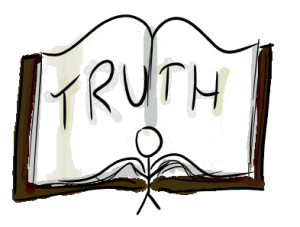 Title: The Prague Cemetery (Goodreads)
Title: The Prague Cemetery (Goodreads)
Author: Umberto Eco
Translator: Richard Dixon
Published: Vintage, 2010
Pages: 566
Genres: Historical Fiction, Literary Fiction
My Copy: Personal Copy
Buy: Amazon, Book Depository (or visit your local Indie bookstore)
Every nation has its own secret service, perpetrating forgeries, plots, and massacres. Simone Simonini is called upon to help create a political conspiracy by forging a document known as The Protocols of the Elders of Zion. Simone is an adventurer, forger and secret agent working for a powerful secret organisation or is he working for himself? Is he playing both sides against each other or will he end up being a scapegoat?
I love Umberto Eco; every time I read a book by him, I get a mind crush; how can one man have so much knowledge on Catholicism, Freemasons, the Knights Templar and even the Rosicrucians? First book I ever read of his was Foucault’s Pendulum and will always remain my favourite because I did not know what to expect. I was so surprised with his knowledge that when he started building the conspiracy behind this book I even started to feel convinced by it too. I had to remind myself that it was fiction and that they were trying to create a conspiracy theory that others would believe.
Umberto Eco is not the easiest author to read; he jams his books full of facts and in The Prague Cemetery it’s all about Nineteenth-century Europe and conspiracies both real and imagined. You certainly have to have an interest in history of secret societies to enjoy the mystery that Eco creates. Luckily for me, I have that interest and feel like Eco is just encouraging me to learn more about these Secret societies; I still have not worked out how to join the Illuminati yet.
The protagonist Simone Simonini is slimy, manipulative and almost an evil genius. This makes him perfect for the role he plays. While it is hard to keep up with all his thoughts and trying to think that many moves ahead, I just enjoyed where this novel took me.
They call Umberto Eco the Dan Brown for the intellects, and while I do try to be pretentious and act like an intellectual, I have a lot more to learn. I love this title for Eco because he takes the conspiracy thriller elements and certainly adds his knowledge of history to it, making a truly intelligent novel. There is so much to learn and so much to enjoy from a book like this. This is my third Eco novel (Foucault’s Pendulum & The Name of the Rose) and I’m already looking forward to my forth. While I will need a break from his brilliance, I would love to know which Eco book I should read next?

 Title: Goodbye Lullaby (
Title: Goodbye Lullaby ( Title: The Satanic Verses (
Title: The Satanic Verses ( Title: Life of Pi (
Title: Life of Pi ( I wanted to do an overview of my first subject at university but I’m finding that very hard to do. The whole thing was on the concept of Truth and trying to understand how to think of things critically and determine what truth really is. My last post on the encyclopaedia was also a result of this subject; it was actually one of my assignments. The basic concept of the subject was trying to get the students to work out if Truth is subjective or objective, relative or absolute.
I wanted to do an overview of my first subject at university but I’m finding that very hard to do. The whole thing was on the concept of Truth and trying to understand how to think of things critically and determine what truth really is. My last post on the encyclopaedia was also a result of this subject; it was actually one of my assignments. The basic concept of the subject was trying to get the students to work out if Truth is subjective or objective, relative or absolute.